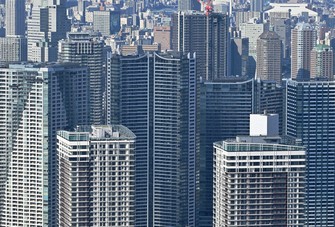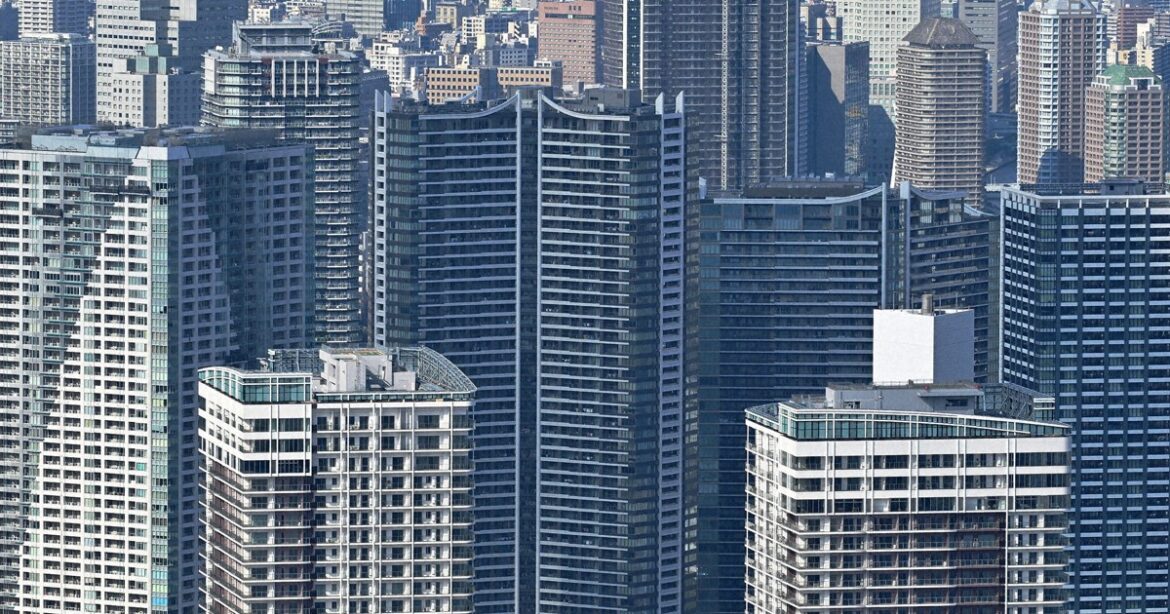
High-rise housing complexes are seen in a Tokyo Bay area in the capital’s Chuo Ward in this photo taken from a Mainichi Shimbun helicopter on Sept. 16, 2025. (Mainichi/Natsuki Nishi)
Housing prices in Japan are soaring. As housing is a fundamental aspect of living, urgent measures are needed to alleviate financial anxieties for households.
The Ministry of Land, Infrastructure, Transport and Tourism reported that as of July, land prices had risen for the fourth consecutive year, driven by the economic recovery and high prices. The cost of constructing homes and other buildings is also rising, pushing up real estate prices.
The surge in housing costs is particularly troubling for consumers. In the Tokyo metropolitan area, the average price of a new condominium has exceeded 100 million yen (about $675,000), affecting both the resale and rental markets. According to a real estate information website, the average rent for a family-oriented apartment in Tokyo’s 23 special wards reached nearly 250,000 yen (around $1,700) in July, setting a new record. This situation makes it difficult for all but a few to live in the city center.
The rise in material and labor costs is cited as a contributing factor. A survey indicates that construction costs have increased by about 30% over the past five years.
The low-interest rates and the weak yen have also spurred real estate transactions by affluent individuals and foreign investors. An increase in properties purchased for investment rather than living in could exacerbate supply-demand tensions.
Some municipalities have begun to address the issue. Tokyo’s Chiyoda Ward Government has requested the real estate industry to prohibit the resale of properties for five years after purchase. The Kobe Municipal Government is considering imposing a “vacancy tax” on owners of unoccupied residences, with high-rise condominiums in mind.
However, excessive government intervention could disrupt market functions and infringe on property owners’ rights.
The surge in housing prices is not exclusive to Japan. In the West, real estate prices are also rising due to factors including inflation and difficulties in securing construction workers since the COVID-19 pandemic. In Japan, particularly, the limited availability of new development sites in urban areas further restricts supply.
Securing housing near workplaces to improve one’s quality of life is a global challenge. Increasing affordable housing is essential.
The Tokyo Metropolitan Government plans to establish a public-private fund to develop housing and offer it at accessible prices for families and others to rent. However, the fund is limited to 20 billion yen (approx. $135 million), insufficient to meet the demands of all hopeful applicants.
While the population decline and vacant homes increase, housing prices continue to rise. Policies are needed to correct these market distortions. It is time for businesses to shift their focus to supplying affordable housing, and for the public and private sectors to meet the needs of society.


AloJapan.com